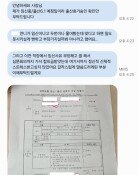World economy faces uncertainty amid U.S.-China trade spat
World economy faces uncertainty amid U.S.-China trade spat
Posted May. 13, 2019 08:31,
Updated May. 13, 2019 08:31
As trade talks between the world’s two superpowers broke up with no agreement with a renewed tariff war looming on the horizon, the global economy seems to be threatened to fall into a vicious cycle of a decline in trade volumes and economic downturns. This could cause a serious concern for South Korea, which is highly dependent on the United States and China for trade, as it is likely to take a direct hit from the increased tariff on imports.
The U.S. delegation led by U.S. Trade Representative Robert Lighthizer and Treasury Secretary Steven Mnuchin and the Chinese side headed by Vice Premier Liu He ended a second day of talks to negotiate a trade deal on Friday (local time) in Washington without an agreement. Unlike his last visit to Washington in early April, Liu has left town without visiting President Donald Trump.
“The President also ordered us to begin the process of raising tariffs on essentially all remaining imports from China, which are valued at approximately USD 300,” Robert Lighthizer said in a statement. Earlier, the Trump administration hiked tariffs on 200 billion dollars’ worth of Chinese imports to 25 percent from 10 percent, which would take effect at midnight on Friday. “The deal will become far worse for them if it has to be negotiated in my second term,” Trump said in his Twitter account Saturday.
Escalating tensions between the two countries are expected to have a negative effect on the global economy. The International Monetary Fund (IMF), in its April World Economic Outlook, analyzed that bilateral U.S.-China trade could fall by 25 percent to 30 percent in the first year if both countries impose 25 percent tariffs on imports. This would result in a decline of the GDP growth of the United States by 0.3 to 0.6 percentage point, and by 0.5 to 1.5 percentage point for China. The world’s growth rate would also fall by around 0.2 percentage point, according to the fund.
Meanwhile, IHS Markit assessed that a negative impact on exports to China will have a ripple effect to take a toll on Japan and South Korea, which supply China with intermediary goods including electronics and chemical products. South Korea’s reliance on exports to China currently stands at 24 percent, and intermediary goods account for 80 percent of items shipped to China.
The Korea International Trade Association (KITA) predicted that the total exports of South Korea would plunge by 870 million dollars (around 1.18 trillion won) annually. Experts have expressed concern that indirect factors such as delayed business investment, anxiety in financial markets, and falling oil prices could strike another blow to the country’s exports and overall economy. With rising uncertainty in markets, the Korean won’s value against the dollar has dropped by 3.72 percent since last month, a largest decline except for Turkey, which has lately faced concerns for a financial crisis.
Choong-Hyun Song balgun@donga.com · Yong Park parky@donga.com
Headline News
- N. Korea launches cyberattacks on S. Korea's defense companies
- Major university hospital professors consider a day off each week
- Italy suffers from fiscal deficits from ‘Super Bonus’ scheme
- Inter Milan secures 20th Serie A title, surpassing AC Milan
- Ruling and opposition prioritize spending amid tax revenue shortfalls







